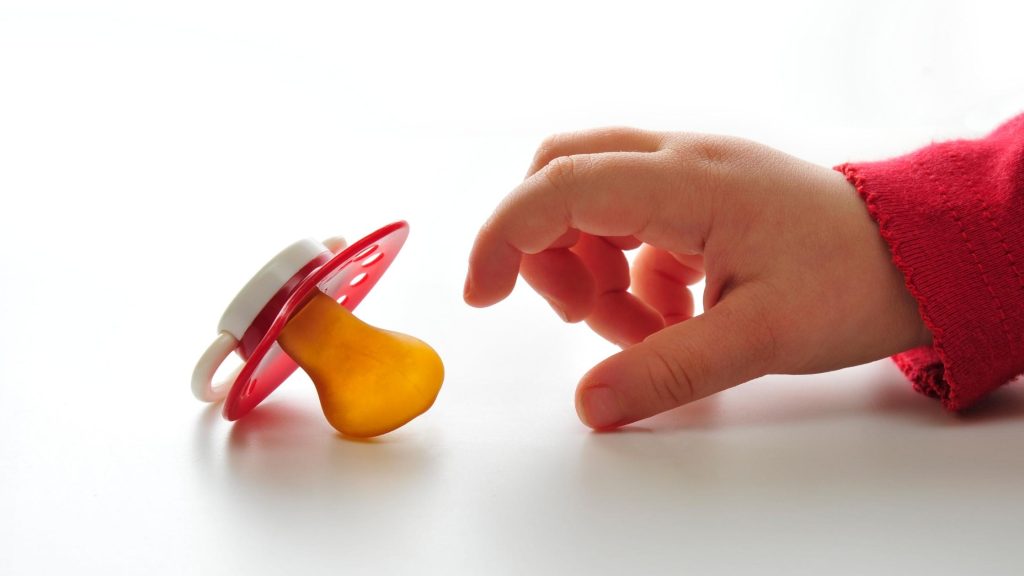The Ins and Outs of Pacifiers

Babies have a strong sucking reflex, and many babies may start sucking their thumb or fingers before they are even born. The sucking reflex is necessary to gain nutrients, but it also has a soothing effect.
Pacifiers can help soothe your baby by feeding into this reflex, but are they okay for your baby?
The Ins and Outs of Pacifiers
Pacifiers have many benefits and their own set of risks as well. Let’s talk about it.
Pros:
- They can soothe a fussy baby.
- They can give a temporary distraction during shots, blood tests, or other medical procedures.
- It can help your baby fall asleep if they have trouble settling down.
- It might reduce the risk of SIDS (sudden infant death syndrome).
Cons:
- The baby can become dependent on using a pacifier, which can be a problem should it fall out of their mouth in the middle of the night.
- Pacifiers may increase the risk of middle ear infections.
- Prolonged usage can potentially lead to dental problems.
- It can potentially disrupt breastfeeding when offered too early.
If you choose to give your baby a pacifier, you should not use a pacifier as a first line of defense. If your baby is fussy, consider soothing them in other ways first. You should also choose a one-piece, dishwasher-safe variety and go at your baby’s pace. If your baby isn’t interested in the pacifier, don’t force it. You also need to keep your pacifier clean, and you should avoid putting sweet substances on it.
As a baby gets older, the risks of using a pacifier outweigh the benefits. Most kids stop using a pacifier between the ages of two and four, but some need help breaking the habit. The best way to do this is by rewarding your child when they do not use a pacifier.